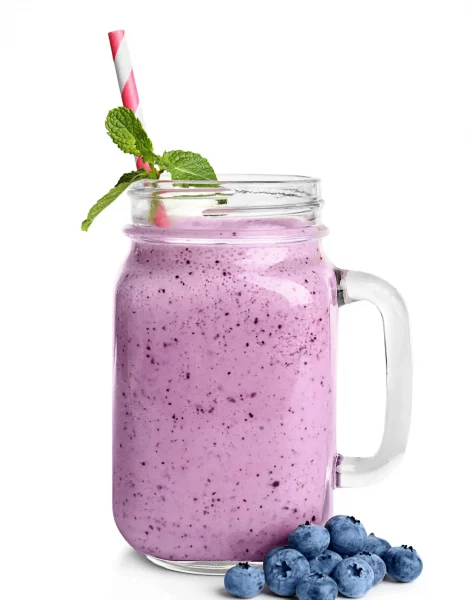Nutritionist Vancouver
In today’s world, it’s more important than ever to prioritize our health. With the abundance of processed foods containing chemicals and unknown ingredients, industrial seed oils, food dyes, and the widespread use of pesticides and GMOs in our produce, it’s easy to see why our health is being compromised. These factors can have a negative impact on our bodies, leading to chronic health conditions, decreased energy levels, and a lower quality of life. At Fitness Report, I believe that a healthy diet is the foundation of a healthy lifestyle. By making informed choices about what we eat, we can improve our overall health and well-being.

To start, let’s look at industrial seed oils. These oils, such as soybean, corn, and canola oil, are commonly used in many processed foods and are often touted as “heart-healthy” alternatives to animal fats. However, these oils are highly processed and contain high levels of omega-6 fatty acids, which can lead to inflammation in the body when consumed in excess. Inflammation is a contributing factor to many chronic diseases, including heart disease, cancer, and diabetes.


Processed foods, in general, are often high in added sugars, unhealthy fats, and preservatives. These foods can contribute to weight gain, inflammation, and an increased risk of chronic diseases. By choosing whole, minimally processed foods, we can provide our bodies with the necessary nutrients it needs to function optimally.

Additionally, the use of pesticides and GMOs in our produce is a growing concern. Pesticides are used to kill insects and other pests that can damage crops, but they can also be harmful to human health. Studies have linked pesticide exposure to an increased risk of cancer, Parkinson’s disease, and other health problems. GMOs, or genetically modified organisms, have also been linked to health concerns, including allergenic reactions and antibiotic resistance.


Another concerning ingredient in our food supply is food dyes. These synthetic colors are added to many processed foods to make them more visually appealing. However, many food dyes have been linked to hyperactivity in children, allergic reactions, and even cancer. It’s important to read food labels and avoid products containing artificial colors whenever possible.
Welcome to Fitness Report's Nutrition Services!
I believe that a healthy diet is crucial to achieving your fitness goals and living a happy, healthy life. As a certified nutrition coach, I am dedicated to providing personalized nutrition plans that are tailored to your individual needs and goals.
Nutrition is an essential component of a healthy lifestyle. A well-balanced diet can improve your physical and mental well-being, increase your energy levels, and reduce your risk of chronic diseases. Eating a variety of nutrient-dense foods such as fruits, vegetables, whole grains, lean proteins, and healthy fats can provide your body with the necessary vitamins, minerals, and nutrients it needs to function optimally.
At Fitness Report, I offer a range of nutrition services that can help you achieve your health and fitness goals. Here are some of the benefits of working with me, a certified nutrition coach:
Personalized Nutrition Plans: I take into consideration your lifestyle, health history, and fitness goals to create a nutrition plan that is tailored to your individual needs.
Improved Overall Health: My nutrition plans are designed to improve your overall health by providing your body with the necessary nutrients it needs to function optimally.
Weight Management: Whether you are looking to lose weight or maintain a healthy weight, I can help you achieve your goals.
Increased Energy Levels: Proper nutrition can increase your energy levels and improve your overall quality of life.
Disease Prevention: A healthy diet can reduce your risk of chronic diseases such as heart disease, diabetes, and certain types of cancer.
I offer a range of nutrition services to help you achieve your health and fitness goals:
Nutrition Consultations: I will conduct a thorough assessment of your current diet and lifestyle and provide you with a personalized nutrition plan.
Meal Planning: I offer customized meal planning services to help you reach your weight loss or fitness goals.
Nutrition Coaching: I will work with you to implement healthy eating habits and provide ongoing support and accountability.
Group Nutrition Programs: I offer group nutrition programs to help you and your friends or family members achieve your health and fitness goals together.
At Fitness Report, I am committed to providing my clients with the highest quality nutrition services. As a certified nutrition coach, I have years of experience working with clients of all ages and fitness levels. I am dedicated to helping you achieve your health and fitness goals through personalized nutrition plans, meal planning, and nutrition coaching.
Contact me today to learn more about my nutrition services and how I can help you achieve your health and fitness goals!
Obesity is a global public health concern, with rates of obesity continuing to rise worldwide. In North America, more than one-third of American adults are obese, and the rates of obesity in Canada are also on the rise. According to the World Health Organization (WHO), more than 1.9 billion adults were overweight in 2016, and of these, over 650 million were classified as obese. Obesity is a complex issue with multifaceted causes, including genetics, environment, and lifestyle factors. However, a sedentary lifestyle, poor dietary choices, and the availability of unhealthy food options are significant contributors to the obesity epidemic. Obesity increases the risk of many chronic health conditions, including heart disease, stroke, type 2 diabetes, and certain types of cancer. As a certified nutrition coach at Fitness Report, I believe that nutrition plays a crucial role in weight management and overall health. By working with me, you can develop healthy eating habits and achieve your weight loss goals in a sustainable way.
Nutritionist Vancouver: Frequently Asked Questions (FAQs)

The cost to see a nutritionist varies in BC, but you can expect to pay anywhere from $90.00 to $200.00 per session. If you got to a health or healing center the cost will be on the higher end as you will get to speak with more in depth with professionals like doctors and registered dietitians.
In British Columbia you do not need a referral from your doctor to speak with a nutritionist. But if you decide to make any drastic changes in your diet, speaking with your doctor is recommended.
You should meet with your nutritionist every 3 to 4 weeks if you are on a specific diet or meal plan. The nutritionist will help to keep you on track and make any modifications if necessary.
Visiting a nutritionist is never a bad idea, and they can help with weight loss and overall health.
A nutritionist can help you with overall health goals to lose weight, feel more energized, and get more active.
A dietician can provide the same information as a nutritionist but they are also qualified to give advice on specific health conditions.
